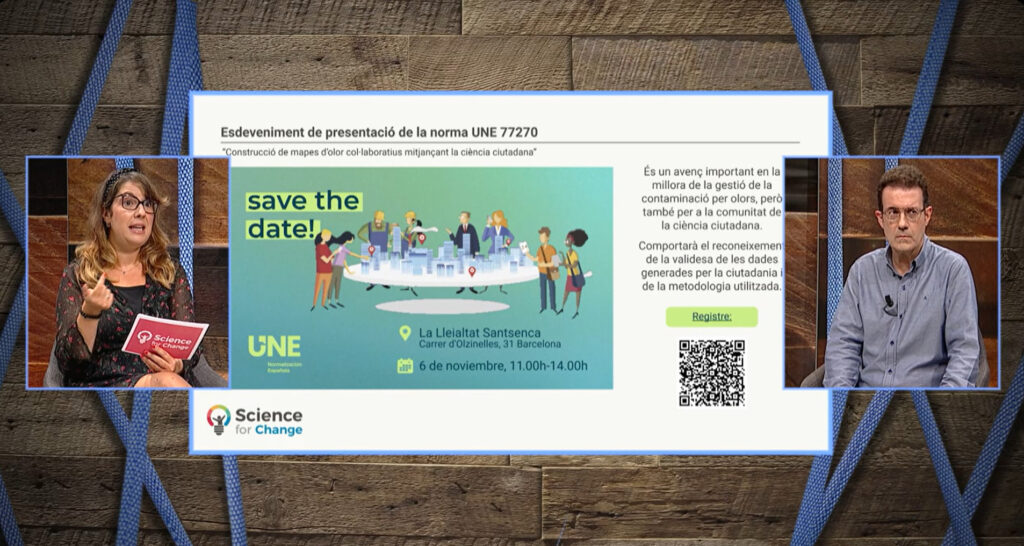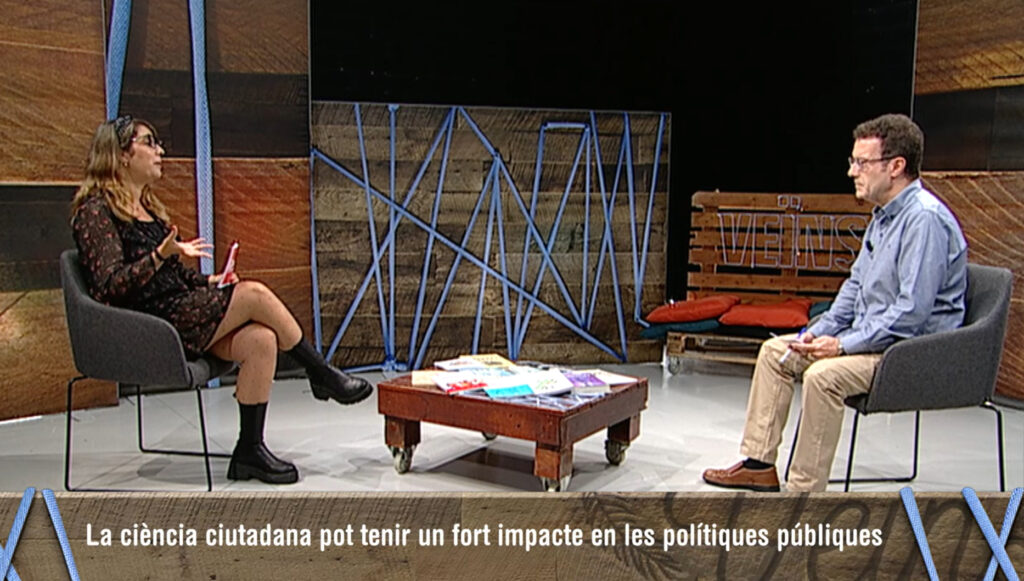
20 de October de 2023
Addressing Odor Pollution and Endometriosis: Citizen Science in Action
We live in a complex society, which is why policymakers, society and the scientific community need to work together to achieve progress. Rosa Arias, CEO and founder of Science for Change, spoke about this topic at the premiere of the third season of the “Science with you” section on L’Hospitalet TV.
Getting to inform public policies based on evidence is possible. How? Through citizen science, for example. At Science for Change we apply the multi-level governance model to make significant contributions to public policies based on scientific evidence.
Thanks to citizen science, policies more aligned with the needs of society can be applied, thus promoting social innovation at all levels. At Science for Change we have 2 great examples of how it is possible to influence public policy thanks to citizen science and co-creation methodologies. Specifically in the field of odours and the other in the field of health for women with endometriosis.
Citizen science to measure odour pollution
In the field of odour pollution, Rosa was the coordinator of the D-NOSES project and is the creator of the OdourCollect app, both citizen science projects to address odour pollution.
D-NOSES managed to involve public administrations, industries, research institutions and citizens in participatory sessions aimed at co-designing solutions to reduce the impact of odour pollution. Thanks to this work, a new methodology was developed to evaluate the impact of odour. The differential feature? Involve citizens, which provides real-time data on the actual perception of odor in affected communities.
This citizen science methodology was validated to monitor odour pollution through 10 case studies in Europe, Chile and Uganda. The project developed its intervention through the OdourCollect app, which allows collecting odour observations in real time, as well as describing the type of smell perceived, the intensity and the hedonic tone, in a geolocated way and anywhere in the world.
One of the most important milestones of the project was organizing the event “Revisiting Odour Pollution in Europe” held in October 2021. There, the Green Paper was presented with the main challenges that must be faced to regulate odour pollution and also proposed solutions based on in citizen science to improve the European political framework.
As a direct result of this event, the European Committee of the Regions (CoR) welcomed odours and citizen science in point 45 of the opinion: EU Action Plan Zero Pollution for Air, Water and Soil.
But the results in public policies in this field do not end here. We have been working collaboratively for 4 years with the Spanish Association for Standardization (UNE) and together with 15 experts to write the first standard that defines the creation of collaborative maps for the evaluation of odour annoyance through citizen science.
The standard “Construction of collaborative odour maps through citizen science” will allow new immission limits to be established in future regulations on odours to protect citizens, taking into account their own perception in the impact assessment.
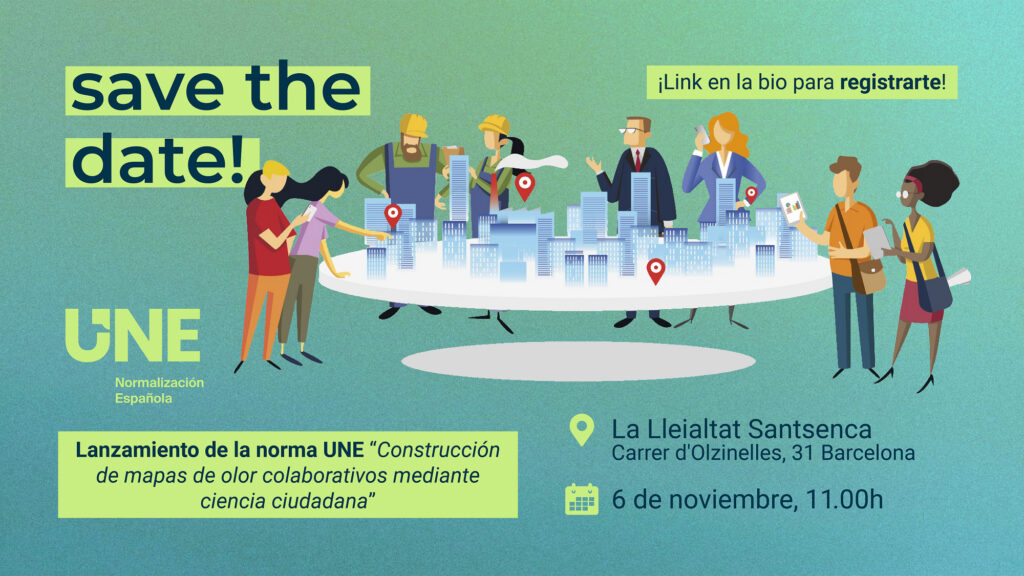
Citizen science and health: impacting the comprehensive approach to endometriosis
Within the framework of the TRANSFORM project we carried out a first-person pilot on endometriosis. As a result of the TRANSFORM project, the principles of responsible research and innovation were introduced in the practice of public policies and in the Strategy for Intelligent Specialization of Catalonia (RIS3CAT 2030), highlighting the role of citizen science.
Together with the Gynaecology and Obstetrics Area of the Hospital de la Santa Creu i Sant Pau and the Agency for Health Quality and Evaluation of Catalonia (AQuAS), we carried out collaborative research with health professionals and women with endometriosis. The objective was to delve into the biopsychosocial experiences of the disease, the experiences, needs and recommendations regarding health services.
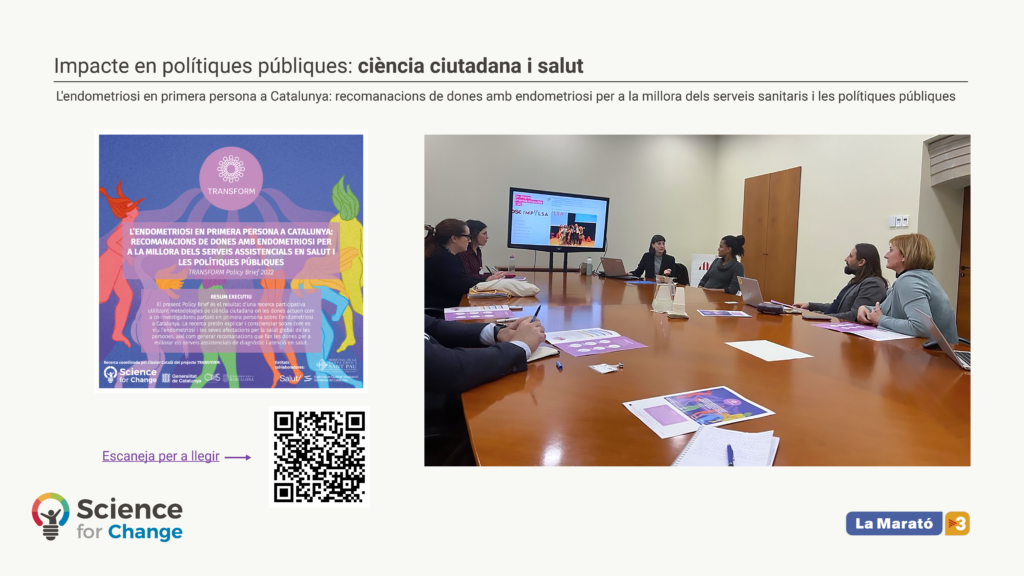
The recommendations have been accepted in the new Endometriosis Unit of the Hospital de Sant Pau, which is moving towards a multidisciplinary approach to the cure of endometriosis. In addition, we were able to present the report to representatives of the Parliament of Catalonia in December 2023, and the next edition of the TV3 Marathon has been announced, and it will be dedicated to sexual and reproductive health and one of the main thematic axes will be endometriosis.
Entradas anteriores
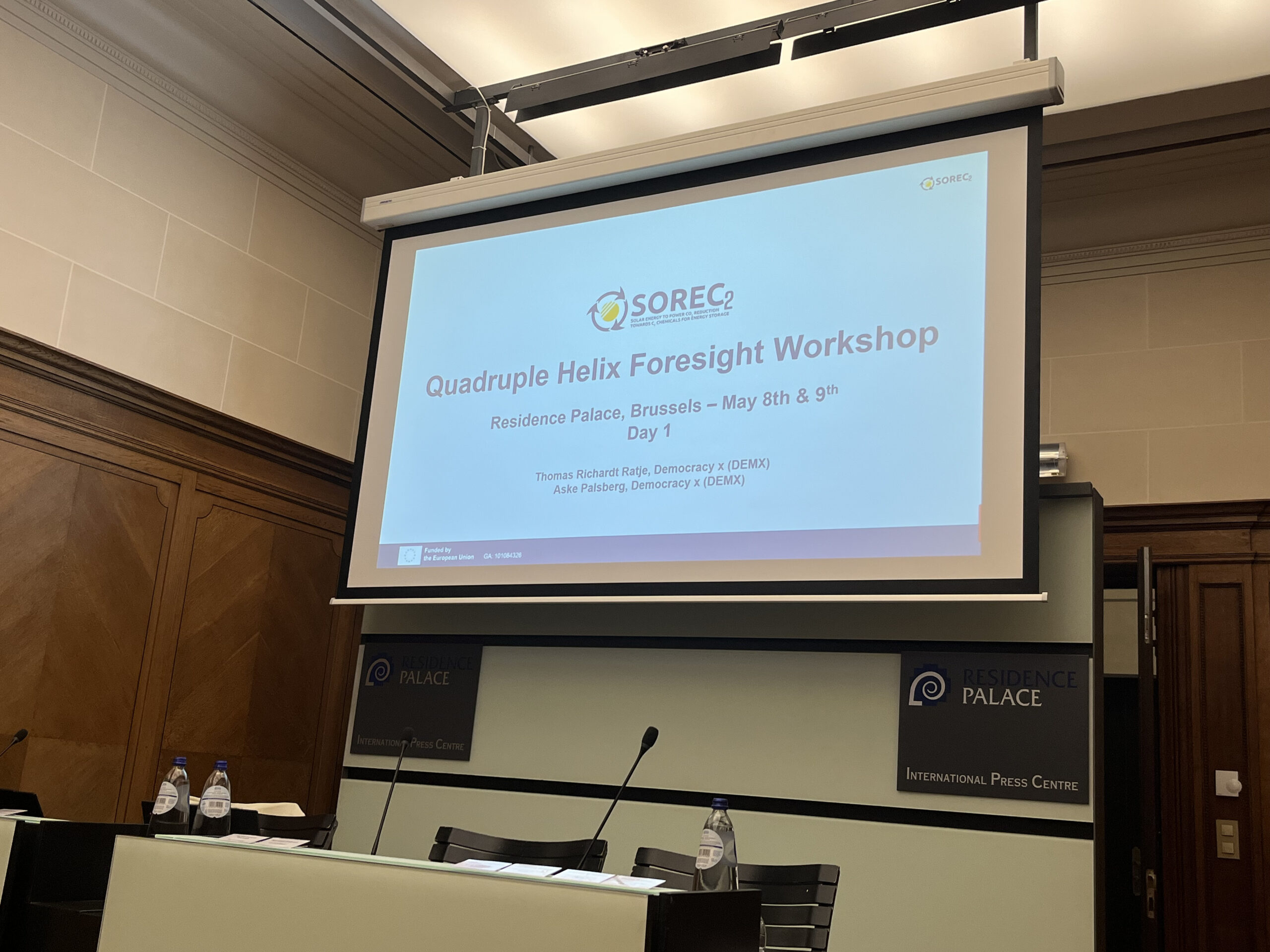
Brussels Workshop Gathers Experts to Shape the Future of Photo-Electrochemical Cells
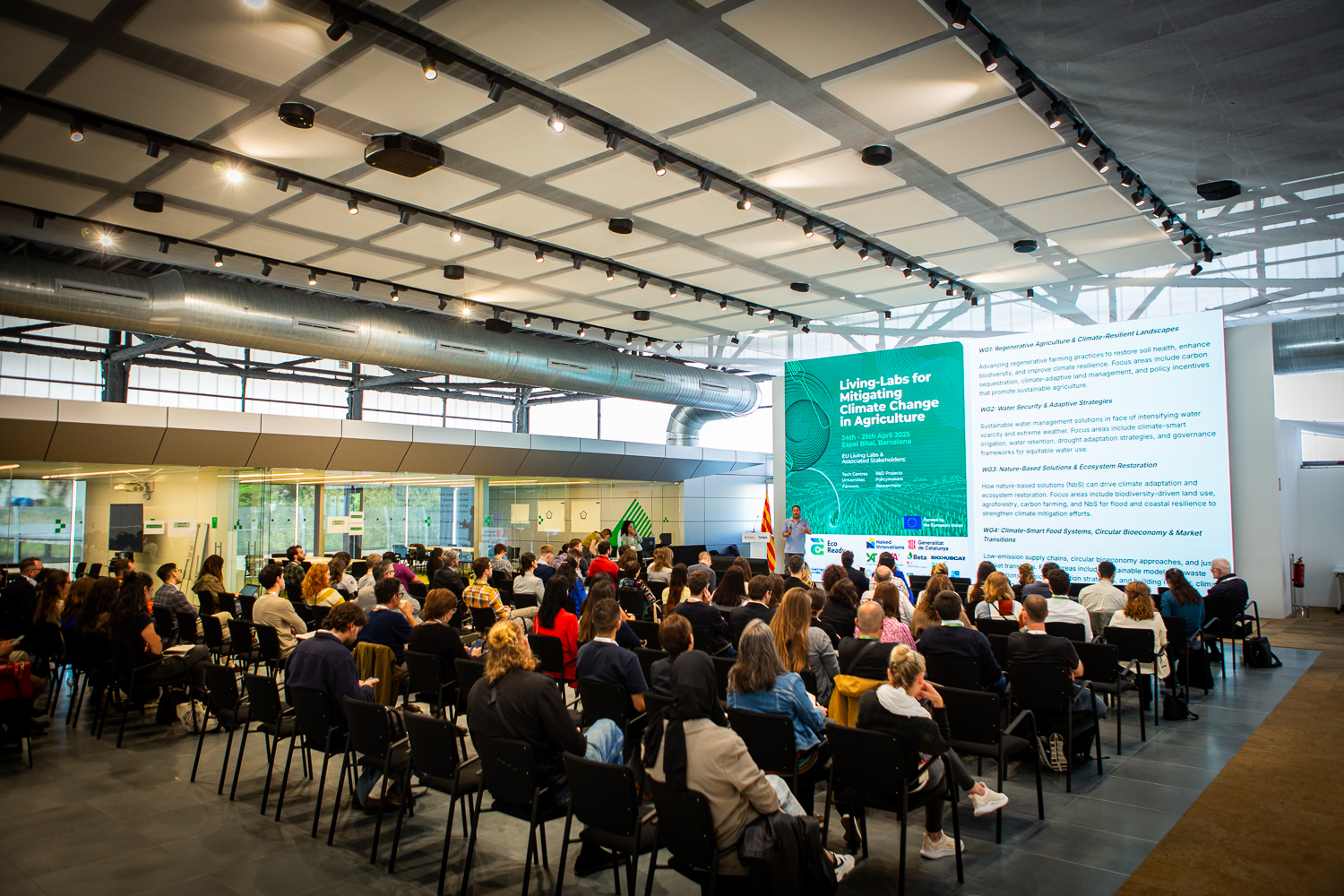
SFC Showcases Citizen Science Solutions for Climate-Resilient Agriculture at EU Living Labs Conference
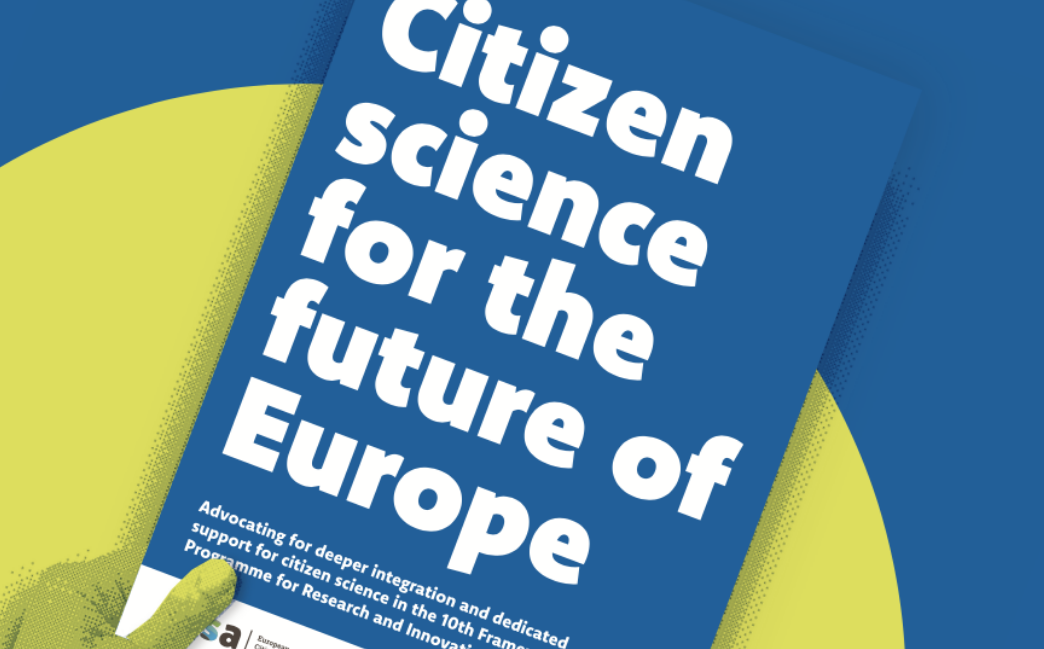
Position Paper Launch: Citizen Science for the Future of Europe – advocating for deeper integration and dedicated support for citizen science in the 10th Framework Programme for Research and Innovation (FP10)
